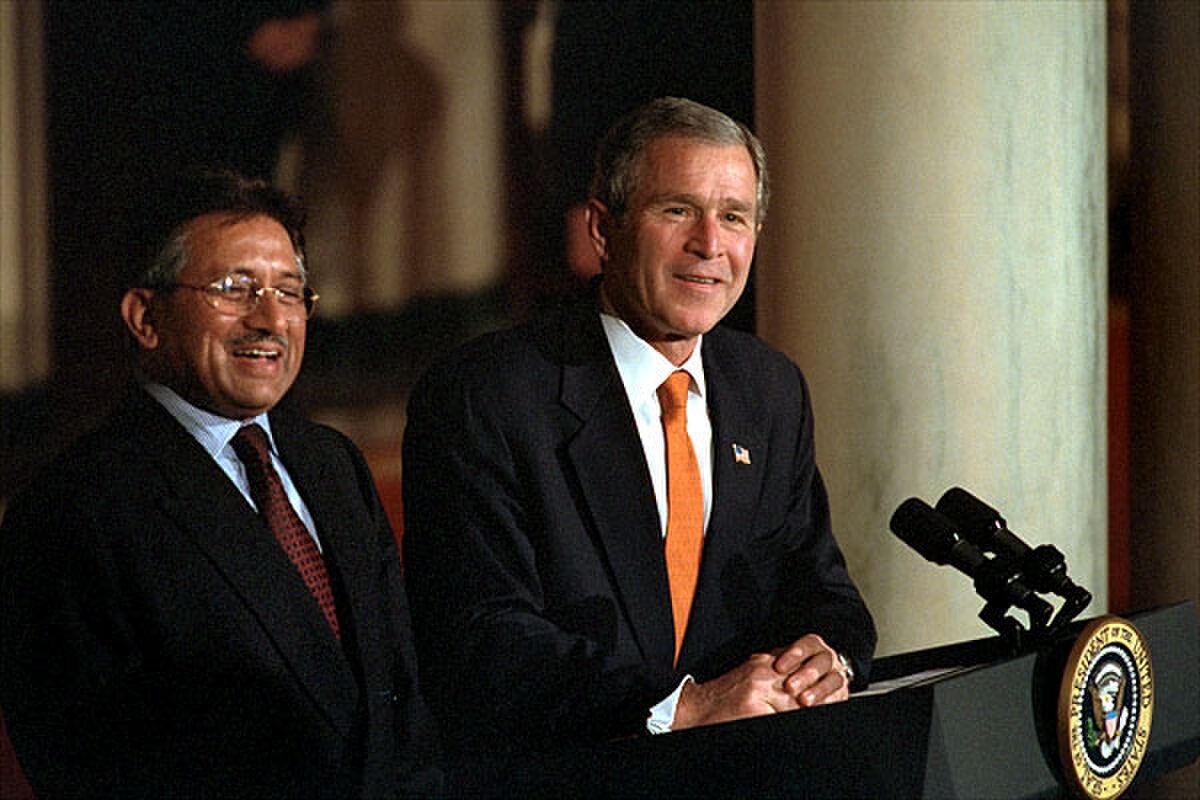
Musharraf Era in Pakistan
PakistanThe presidency of Pervez Musharraf from 1999 to 2007 marked the first time liberal forces held significant power in Pakistan. Initiatives for economic liberalization, privatization, and media freedom were introduced, with Citibank executive Shaukat Aziz taking control of the economy. Musharraf's government granted amnesty to political workers from liberal parties, sidelining conservatives and leftists. Musharraf significantly expanded private media, aiming to counter India's cultural influence. The Supreme Court ordered general elections by October 2002, and Musharraf endorsed the U.S. invasion of Afghanistan in 2001. Tensions with India over Kashmir led to a military standoff in 2002.
Musharraf's 2002 referendum, deemed controversial, extended his presidential term. The 2002 general elections saw liberals and centrists winning a majority, forming a government with Musharraf's backing. The 17th Amendment to Pakistan's Constitution retroactively legitimized Musharraf's actions and extended his presidency. Shaukat Aziz became Prime Minister in 2004, focusing on economic growth but facing opposition for social reforms. Musharraf and Aziz survived several assassination attempts linked to al-Qaeda.
Internationally, allegations of nuclear proliferation tarnished their credibility. Domestic challenges included conflicts in tribal areas and a truce with the Taliban in 2006, though sectarian violence persisted.
